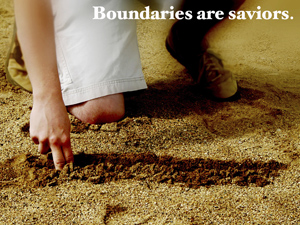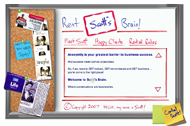 1. Are customers asking to buy a product you don’t presently sell? And if so, what does that tell you? And what are you going to do about it? Listen closely.
1. Are customers asking to buy a product you don’t presently sell? And if so, what does that tell you? And what are you going to do about it? Listen closely.
2. Are you making people WANT to stand in line and pay higher prices than they know they should? Think Nintendo Wii. Not customers; fans. And not satisfied or even loyal — insistent. Who loves YOUR stuff?
3. Are you the one with the most information? As Bill Gates said, “Leaders in business are the people and organizations who do an outstanding job with information.” How much intellectual property to you own?
4. Does this person enrich your life in any way? If not, ditch ‘em. Sure, it hurts, but you’ve got to be fair. To yourself AND the other person.
5. Does this statement give you any insight about yourself? It probably does. After all, you learn not from your experiences but from intelligent reflection upon those experiences.
6. How are you closing the credibility gap? Ask yourself this question daily. Because defensiveness always exists.
7. How are you helping your customers build their business? That’s really the end-goal. Improving the client’s condition.
8. How do you avoid being perceived as one-dimensional? You know, typecast. One hit wonder. One trick pony. After all, diversity is equity. What’s your sequel?
9. How long does it take for your ideas to become tangible things? Because ideas are free; but execution is priceless.
10. How many free samples of your work are out there? People need to see you doing what you do. That way, they’ll get hooked and think, “Cool! I want him to do that for me too!” Be like a Drug Dealer.
11. How many listening lessons have you taken? Poor listening is widespread. That’s why very few people can answer this question. And all it takes is a little Googling.
12. How many of your customers are seeking expertise elsewhere because they don’t realize you possess it? Ouch. Kind of makes you want to start blogging, huh?
13. How many thinking lessons have you taken? TWO WORDS: Edward DeBono. Read up.
14. How much time elapses between when your gut tells you there is tension (in a relationship, conversation, etc.) and when your partner hears you talk about that tension? Hopefully, as little time as possible.
15. How quickly do you take action on your new idea? Some people talk a big game. Others actually play in that game. Still, Shakespeare was right: action is eloquence. The choice is yours.
16. In what areas of your life are you most intuitive? A good thing to know about yourself. Also a good thing for other people to know about you.
17. In what ways are you currently obsolete? Ya big dinosaur. Come on. It’s 2007. Almost 2008. Get with the times.
18. Is your life working? Man. Think about THAT for a week.
19. What “does it” for you? For me: Tabasco Slim Jims, non-fiction business books with short chapters and mind-numbing action movies that may or may not star Bruce Willis.
20. What are the questions you (still) can’t believe your customers actually asked you? A great list to make with a few of your coworkers.
21. What are you becoming? Another homerun to think about all week.
22. What are you building? Maybe it’s a house. Or a family. Or an enterprise. Or a following. Or a church. Or a model train. But in the end, we’re all building SOMETHING.
23. What do you know that other people find valuable? Make a list of 101 of them. I triple dog dare you.
24. What do you know that people would pay money to learn? For example, if someone were to pay you $5000 for one hour of your time, what questions would they have to ask to get their money’s worth?
25. What else does this make possible? The ultimate leverage question. Ask daily. Because everything you do should lead to something else you do.
26. What have you recently UN-learned? Think about what you’ve been programmed, conditioned and taught to think over the years. How much of that is bullshit?
27. What ideas are you in love with that might prevent you from seeing clearly? This is especially difficult for artists. Especially when your ideas are your brainchildren. Be honest with yourself.
28. What kind of person do you definitely NOT want to become? A good suggestion is to take a look at the veterans of your industry. Look at their lifestyle, work habits and daily routines. Ask yourself if that’s the kind of person you want to become.
29. What personal skills have you not tapped into yet to add value to your customers? They exist. There’s something (or things) inside you that have not yet been used. Don’t waste them.
30. What personal skills have you not tapped into yet to build your business? Like, what are you really, really good at … that you aren’t presently being paid to do?
31. When was the last time you brought new skills to your clients and prospects? Competence is assumed, friends. Be sure to deliver new value regularly.
32. When was the last time you created new value? Last week? Last month? In 1997? Come on. Do something new.
33. When was the last time you listened, all the way through, to an idea that made you uncomfortable? It’s good for the soul.
34. When you realize it doesn’t apply to you; do you keep listening? Lots of people tune out the speaker in this situation. And that’s why they don’t learn much.
35. Where and when are you an automatic NO or YES? Worth making a list for this one. Something to carry with you at all times. Helps you become the world’s expert on yourself. REMEMBER: people respond to policies.
36. Which people in your life don’t respect your time? Ditch ‘em. Your time is the most precious commodity you have. Stop wasting it on people who don’t respect you. Let them suck the blood of someone else.
37. Who creates fires you waste time putting out? Not an easy list to make, but still a worthwhile investigation.
38. Who values you and your knowledge? Maybe it’s your readers. Or your staff. Or your family. Or a bunch of random strangers on the Internet.
LET ME ASK YA THIS…
What’s your best self-assessment question?
LET ME SUGGEST THIS…
Post it here!
* * * *
Scott Ginsberg
That Guy with the Nametag
 Enjoy this post?
Enjoy this post?
If so, perhaps I could help on a more personal, one-on-one basis.
Rent Scott’s Brain today!
 (Read part 1 of this post series here!)
(Read part 1 of this post series here!) Enjoy this post?
Enjoy this post?

 Enjoy this post?
Enjoy this post?
 Enjoy this post?
Enjoy this post? Yes, it IS possible to be TOO approachable.
Yes, it IS possible to be TOO approachable. Enjoy this post?
Enjoy this post? The only thing cooler than learning is UN-learning.
The only thing cooler than learning is UN-learning. Enjoy this post?
Enjoy this post? Oscar Wilde once remarked, “The only thing worse than being talked about is NOT being talked about.”
Oscar Wilde once remarked, “The only thing worse than being talked about is NOT being talked about.” Enjoy this post?
Enjoy this post? Let’s say you publish one article.
Let’s say you publish one article. Enjoy this post?
Enjoy this post? The other day I saw an advertisement for this intense, three-day Wealth-Building Seminar.
The other day I saw an advertisement for this intense, three-day Wealth-Building Seminar. Enjoy this post?
Enjoy this post? 1. Are customers asking to buy a product you don’t presently sell? And if so, what does that tell you? And what are you going to do about it? Listen closely.
1. Are customers asking to buy a product you don’t presently sell? And if so, what does that tell you? And what are you going to do about it? Listen closely. Enjoy this post?
Enjoy this post? Man, has it really been SEVEN years already?
Man, has it really been SEVEN years already?